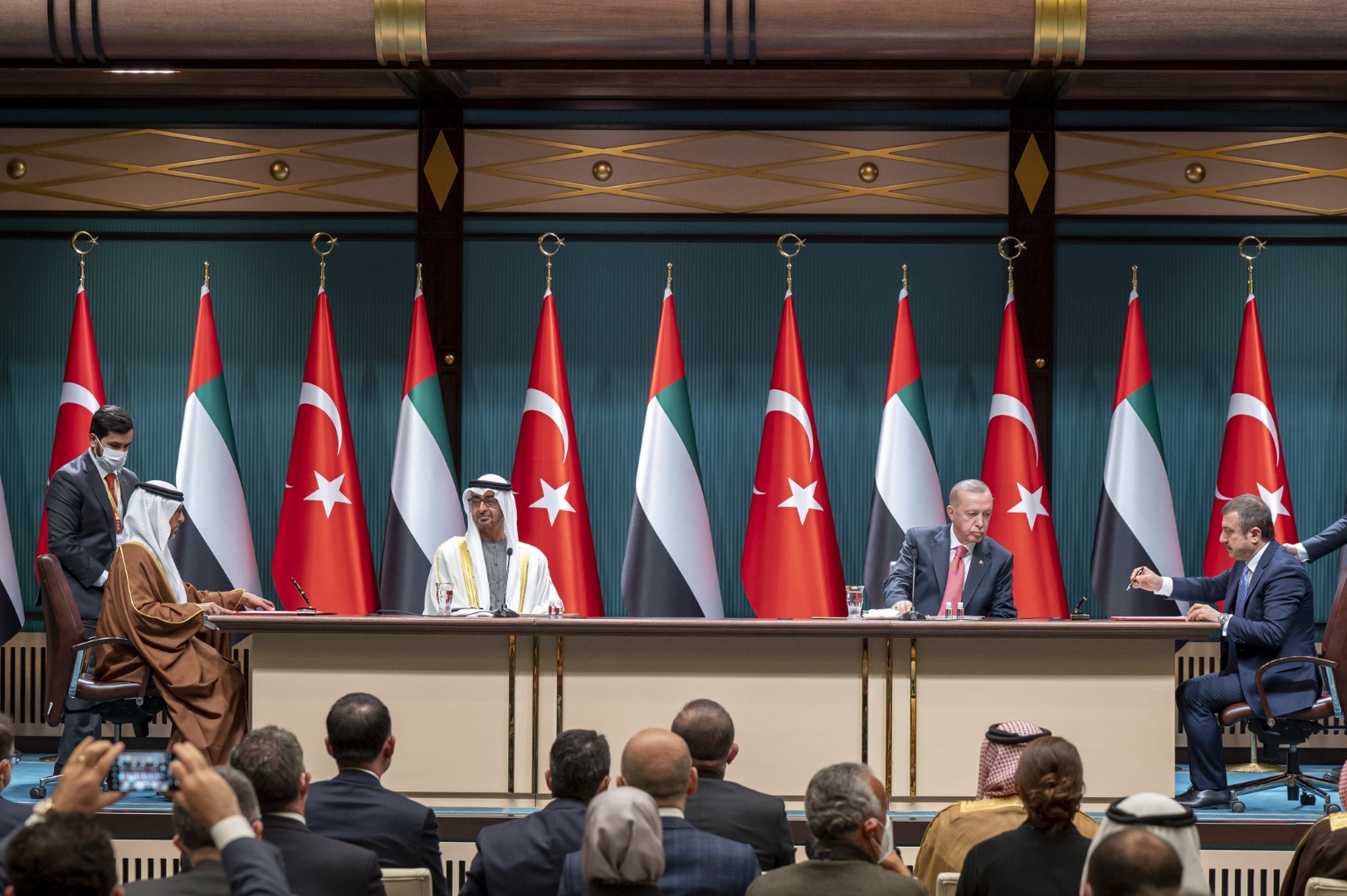How will Turkish-Emirati rapprochement affect their positions on region’s issues?
ERBIL, KRG, Iraq (North Press) – Years after sharp political differences between Turkey and the United Arab Emirates (UAE), Turkish President Recep Tayyip Erdogan hosted the Crown Prince of Abu Dhabi, Sheikh Mohammed bin Zayed al-Nahyan in the Turkish capital, Ankara.
The visit came at a time when the Turkish lira is witnessing a historic crash against the dollar and has caused an internal crisis that may threaten the ruling party and its policies in the country.
This was the first official visit to Turkey since 2012, and the highest-level visit by an Emirati official since relations hit a low.
Hours later after the meeting, the UAE announced a $10 billion investment fund in multiple sectors of the Turkish economy, including energy, climate change and trade.
The Turkish-Emirati differences in the past reached the extent of the Turkish president’s threat to withdraw his country’s ambassador from Abu Dhabi last year, after the signing of the peace agreement between the Emirates and Israel.
The escalation between the two countries appeared on several issues in the Middle East, especially Syria, Libya and the eastern Mediterranean.
The meeting between Erdogan and bin Zayed received remarkable media attention, and is interpreted as a breakthrough between the two countries after months of discussions that began with a phone call between the two countries’ foreign ministers, and then a visit to Ankara by the Emirati National Security Adviser Sheikh Tahnoun bin Zayed and his meeting with Erdogan in mid-August.
In a tweet, the Crown Prince of Abu Dhabi described his talks with Erdogan two days ago as fruitful.
Officials of the two countries expressed their hope to open new horizons for cooperation and joint action.
The prince’s visit to Turkey is viewed as part of wider effort by the UAE to recalibrate its foreign policy, as on November 9, the UAE Minister of Foreign Affairs; Sheikh Abdullah bin Zayed al-Nahyan visited the Syrian President Bashar Assad in Damascus.

